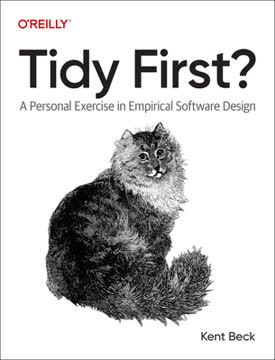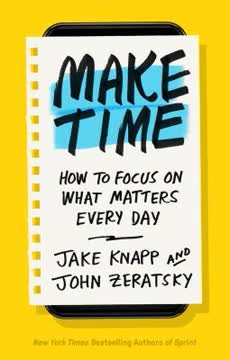Key Takeaways
1. Embrace Calm: Reject the Hustle Culture
Sustained exhaustion is not a badge of honor, it's a mark of stupidity.
Reject the hustle mentality. The modern workplace often glorifies overwork, stress, and constant busyness. However, this approach is counterproductive and harmful to both individuals and businesses. Instead, embrace a calm work environment that values:
- Reasonable work hours (40 hours per week or less)
- Ample time off and vacations
- Focus on effectiveness rather than mere productivity
- Elimination of unnecessary work and distractions
By prioritizing calm, companies can foster creativity, improve decision-making, and maintain long-term sustainability. Remember that working longer hours doesn't necessarily lead to better results; it often leads to burnout and decreased quality of work.
2. Protect Time and Attention: The Most Precious Resources
Companies spend their employees' time and attention as if there were an infinite supply of both. Yet employees' time and attention are among the scarcest resources we have.
Guard against interruptions. Time and attention are invaluable assets that are often squandered in modern workplaces. To protect these resources:
- Implement "office hours" for subject matter experts
- Encourage asynchronous communication over real-time chat
- Create distraction-free work environments (e.g., "Library Rules" in open offices)
- Allow for long stretches of uninterrupted work time
By safeguarding employees' time and attention, companies enable deep work, boost creativity, and improve overall job satisfaction. Remember that every interruption comes at a cost, and it's the employer's responsibility to minimize these disruptions.
3. Rethink Meetings and Communication
If you can't be bothered to schedule a meeting without software to do the work, just don't bother at all. It probably wasn't necessary in the first place.
Minimize unnecessary meetings. Many companies waste countless hours on unproductive meetings and inefficient communication. To improve:
- Question the necessity of every meeting
- Use written communication for updates and discussions when possible
- Limit meeting participants to only those who are essential
- Set clear agendas and time limits for necessary meetings
Effective communication doesn't mean constant communication. By reducing the number of meetings and improving the quality of communication, companies can free up time for meaningful work and reduce stress levels.
4. Foster a Healthy Work Culture
Companies love to declare "We're all family here." No, you're not.
Build a supportive work environment. A healthy work culture is crucial for maintaining calm and productivity. Key aspects include:
- Treating employees as professionals, not family members
- Offering meaningful benefits that support work-life balance
- Implementing fair compensation practices
- Encouraging honest feedback and open communication
Avoid creating a culture of overwork or false urgency. Instead, focus on building an environment where employees feel valued, supported, and able to do their best work without unnecessary stress.
5. Simplify Project Management
Calm requires getting comfortable with enough.
Embrace simplicity in projects. Overcomplicating projects leads to stress and inefficiency. To simplify:
- Work in small teams (ideally three people)
- Set fixed deadlines with flexible scopes
- Focus on essential features and eliminate unnecessary complexity
- Embrace the "good enough" mentality for most tasks
By simplifying project management, companies can reduce stress, improve focus, and deliver results more consistently. Remember that perfection is often the enemy of progress, and that most projects can be completed successfully with a more streamlined approach.
6. Make Strategic Business Decisions
Your company is a product.
Treat your company as a product. Just as you would iterate and improve a product, continuously refine your company's processes and culture. Key strategies include:
- Regularly reassess and adjust company practices
- Be willing to say "no" to opportunities that don't align with your values
- Focus on long-term sustainability rather than short-term gains
- Make deliberate choices about who you serve and how you operate
By viewing your company as a product, you can more easily identify areas for improvement and make strategic decisions that align with your overall vision and values.
7. Maintain Profitability and Sustainable Growth
Until you're running a profitable business, you're always almost out of business.
Prioritize profitability. While growth is important, it shouldn't come at the expense of profitability. To maintain financial health:
- Focus on generating profit from the start
- Avoid the trap of chasing growth at all costs
- Be cautious about taking on outside investment
- Make strategic pricing decisions that support long-term sustainability
Profitability provides the freedom to make calm, rational decisions without the pressure of constantly chasing the next round of funding or appeasing investors with unsustainable growth metrics.
8. Embrace Change and Innovation Wisely
Launch and learn.
Balance innovation with stability. While it's important to evolve and improve, change should be implemented thoughtfully:
- Don't force unnecessary changes on existing customers
- Launch new features or products to learn from real-world usage
- Be willing to maintain older versions of products for customers who prefer them
- Focus on solving real problems rather than chasing trends
Innovation doesn't have to mean constant disruption. By carefully balancing change with stability, companies can continue to grow and improve while maintaining a calm work environment and satisfied customer base.
Last updated:
Review Summary
It Doesn't Have to Be Crazy at Work received mostly positive reviews, with readers appreciating its fresh perspective on work culture. Many found the book's ideas on creating a calm, productive environment inspiring and practical. Reviewers praised the concise writing style and thought-provoking concepts. Some critics felt the book was too focused on Basecamp's specific situation and questioned the applicability to other industries. Overall, readers found value in the book's challenge to conventional wisdom about work-life balance and company culture.
Similar Books










Download PDF
Download EPUB
.epub digital book format is ideal for reading ebooks on phones, tablets, and e-readers.





